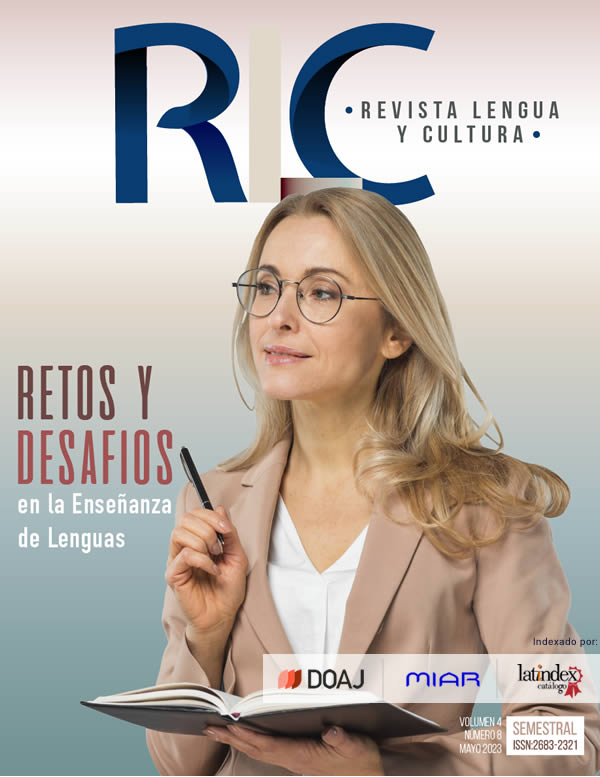Learning Ecologies of university teachers during Covid-19
Abstract
The Covid-19 pandemic has caused many students and teachers to incorporate technology to continue the process of teaching and learning at all levels of education. Unfortunately, teachers in many countries like Mexico have used technology the best they could, with or without previous knowledge about using Information and Communication Technology (ICT). The present research has the main purpose to identify the use, challenges, and advantages of using ICT tools by university teachers, considering the concept of Learning Ecologies (LE) during the Covid-19 pandemic. The present research pretends to consider the concept of LE connecting the professional development of university teachers during the Covid-19 pandemic; to identify the use, challenges, and advantages of incorporating different ICT tools in constructing the concept of LE. The research was carried out using a qualitative method, the participants were a cohort of eight university teachers who shared their experiences in an online questionnaire. Results show that teachers are significantly involved in the use, learning, and searching of different ICT tools to apply in their classes and in their professional development.
Downloads
Literaturhinweise
Adell, J., & Castañeda, L.J. (2010). Los entornos personales de aprendizaje (PLEs): Una nueva manera de entender el aprendizaje. Claves para la investigación en innovación y calidad educativas. La integración de las tecnologías de la información y la comunicación en las aulas. Alcoy: Marfil-RomaTRE Universita degli studi.
Cubeiro Rodríguez, N. (2022). Recursos para el autoaprendizaje : Un análisis desde las ecologías de aprendizaje de los orientadores y las orientadoras = Resources for self-learning: An analysis from the learning ecologies of educational counsellors = Recursos per a l’autoaprenentatge: Una anàlisi des de les ecologies d’aprenentatge dels orientadors i les orientadores. Educar, 58(2), 337–355. https://ezproxy.upaep.mx:2193/10.5565/rev/educar.1516
Estévez, I., Souto-Seijo, A., González-Sanmamed, M., & Valle, A. (2021). Ecologías de aprendizaje y motivación del profesorado universitario de Ciencias de la Salud. Educación XX1, 24(2), 19-40.
González-SanmamedM., SangràA., Souto-SeijoA., & Estévez BlancoI. (2018). Ecologías de aprendizaje en la Era Digital: desafíos para la Educación Superior. PUBLICACIONES, 48(1), 25-45. https://doi.org/10.30827/publicaciones.v48i1.7329
González-Sanmamed, M., Estévez, I., Souto Seijo, A., & Muñoz Carril, P. C. (2020). Ecologías digitales de aprendizaje y desarrollo profesional del docente universitario.
He, T., & Li, S. (2019). A comparative study of digital informal learning: The effects of digital competence and technology expectancy. British Journal of Educational Technology, 4(50), 1-15. https://doi.org/10.1111/bjet.12778
Herrero, A. y Castellano M. (19 de mayo 2020) Tecnología en la post-pandemia: ¿Podrá la educación superior sostener las transformaciones digitales aceleradas por la pandemia? (Interamerican Dialogue). World High Education Conference, UNESCO, Barcelona, España
Jackson, N. (2013). The Concept of Learning Ecologies. En N. Jackson y G. B. Cooper (Eds.), Lifewide Learning Education and Personal Development (pp. 1–21). https://bit.ly/2Bujbi1
Looi, C.K. (2001). Enhancing learning ecology on the Internet. Journal of Computer Assisted Learning, 17(1), 13-20. https://doi.org/10.1111/j.1365-2729.2001.00155.x
López-Calvo, S., & Rodríguez, N. C. (2022). Actividades formales para el desarrollo profesional docente: estudio de caso desde las ecologías de aprendizaje. Revista de Estudios e Investigación en Psicología y Educación, 9, 146-156.
Peeters, J., de Backer, F., Reina, V. R., Kindekens, A., Buffel, T., y Lombaerts, K. (2014). The Role of Teachers’ Self-regulatory Capacities in the Implementation of Self-regulated Learning Practices. Procedia - Social and Behavioral Sciences, 116, 1963–1970. https://doi.org/10.1016/j.sbspro.2014.01.504
Siemens, G. (2007). Connectivism:creating a learning ecology in distributed environments. En T. Hug (Ed.), Didactics of microlearning: Concepts, discourses and examples (pp. 53–68). Waxmann.
Teacher perspectives on ICT: a learning ecology approach. (2015). Computers and Education Vol.92-93 (2015) Date: 2015-12-24 p.161-170 [ISSN 0360-1315].
UNESCO (2014). Enfoques estratégicos sobre las TICS en educación en América Latina y El Caribe. Ediciones UNESCO. https://bit.ly/3fQLTbc
Copyright (c) 2023 Sara Merino Munive

Dieses Werk steht unter der Lizenz Creative Commons Namensnennung - Nicht-kommerziell - Keine Bearbeitungen 4.0 International.













